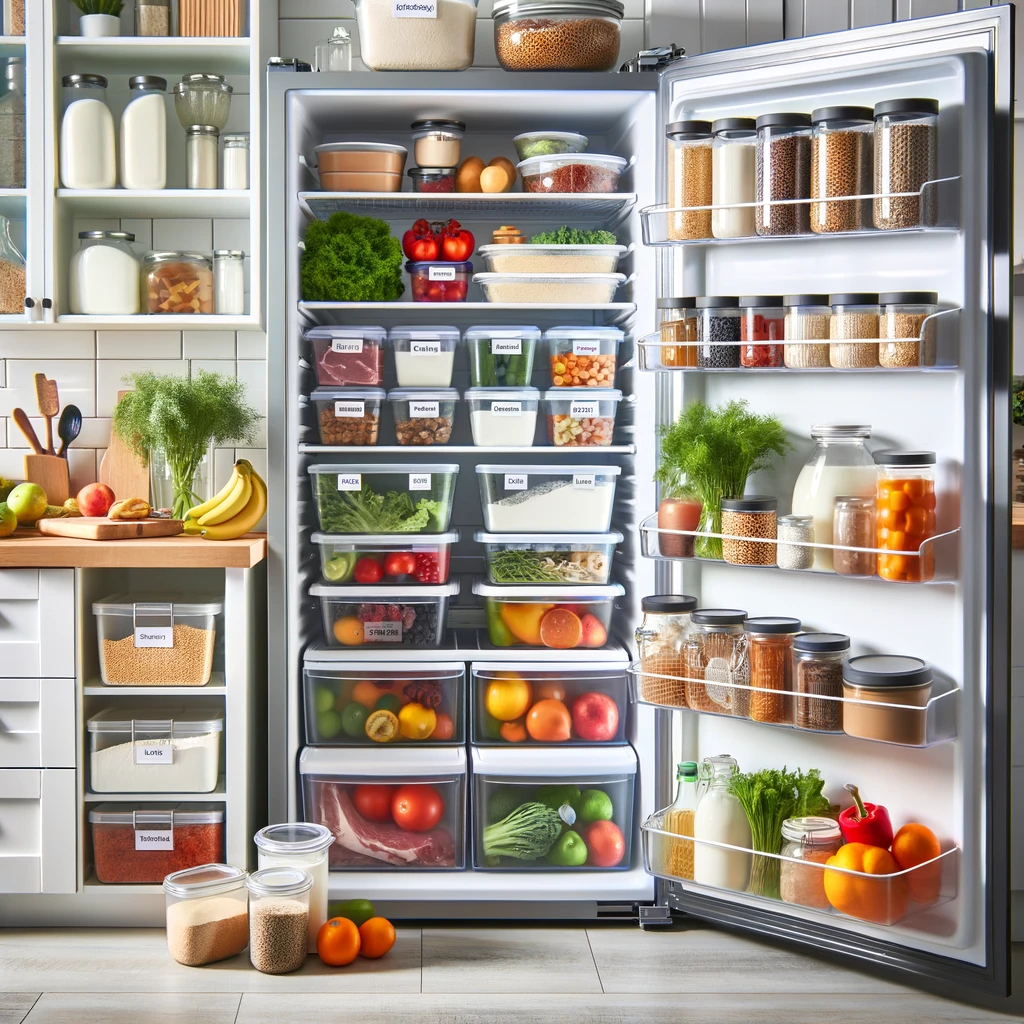Introduction
Proper food storage is essential for maintaining the freshness, flavor, and nutritional value of your ingredients. It also helps to prevent foodborne illnesses and reduce food waste. This guide will provide you with essential tips and techniques for storing various types of food correctly.
Essential Food Storage Tips
1. Understand Expiration Dates
- Tip: Pay attention to the “use by,” “sell by,” and “best by” dates on food packaging. These dates indicate the peak quality and safety of the product. Use older items first to minimize waste.
2. Refrigeration and Freezing
- Tip: Store perishable items such as dairy products, meats, and fresh produce in the refrigerator at temperatures below 40°F (4°C). Freeze items that you won’t use within a few days to extend their shelf life.
3. Properly Store Fruits and Vegetables
- Tip: Different fruits and vegetables have different storage needs. For example, apples and citrus fruits can be stored in the refrigerator, while potatoes and onions should be stored in a cool, dark place. Use perforated bags or containers to allow air circulation.
4. Use Airtight Containers
- Tip: Store dry goods like flour, sugar, rice, and pasta in airtight containers to keep them fresh and prevent pests. Glass or BPA-free plastic containers are ideal for this purpose.
5. Label and Date Everything
- Tip: When storing leftovers or repackaging bulk items, label each container with the contents and the date. This helps you keep track of what’s in your pantry or freezer and ensures you use items before they spoil.
6. Prevent Cross-Contamination
- Tip: Store raw meats, poultry, and seafood on the bottom shelf of the refrigerator to prevent their juices from dripping onto other foods. Use separate cutting boards and utensils for raw and cooked foods.
7. Store Dairy Products Properly
- Tip: Keep dairy products like milk, cheese, and yogurt in their original containers and store them in the coldest part of the refrigerator, usually the back. Avoid placing them in the refrigerator door, where temperatures fluctuate more.
8. Keep Herbs Fresh
- Tip: Store fresh herbs like cilantro and parsley in a glass of water, covered loosely with a plastic bag, and keep them in the refrigerator. Alternatively, you can wrap them in a damp paper towel and store them in a plastic bag.
9. Use the Freezer Wisely
- Tip: Freeze bread, meats, fruits, and vegetables to extend their shelf life. Use freezer-safe bags or containers, and remove as much air as possible to prevent freezer burn. Label items with the date of freezing.
10. Monitor Pantry Conditions
- Tip: Keep your pantry cool, dark, and dry. Avoid storing food near heat sources like ovens or stoves. Regularly check for signs of pests and clean your pantry shelves to maintain a hygienic environment.
Conclusion
Proper food storage is a key aspect of maintaining food safety and minimizing waste. By following these essential tips, you can ensure that your ingredients stay fresh and flavorful for longer, allowing you to enjoy healthier and more delicious meals.

